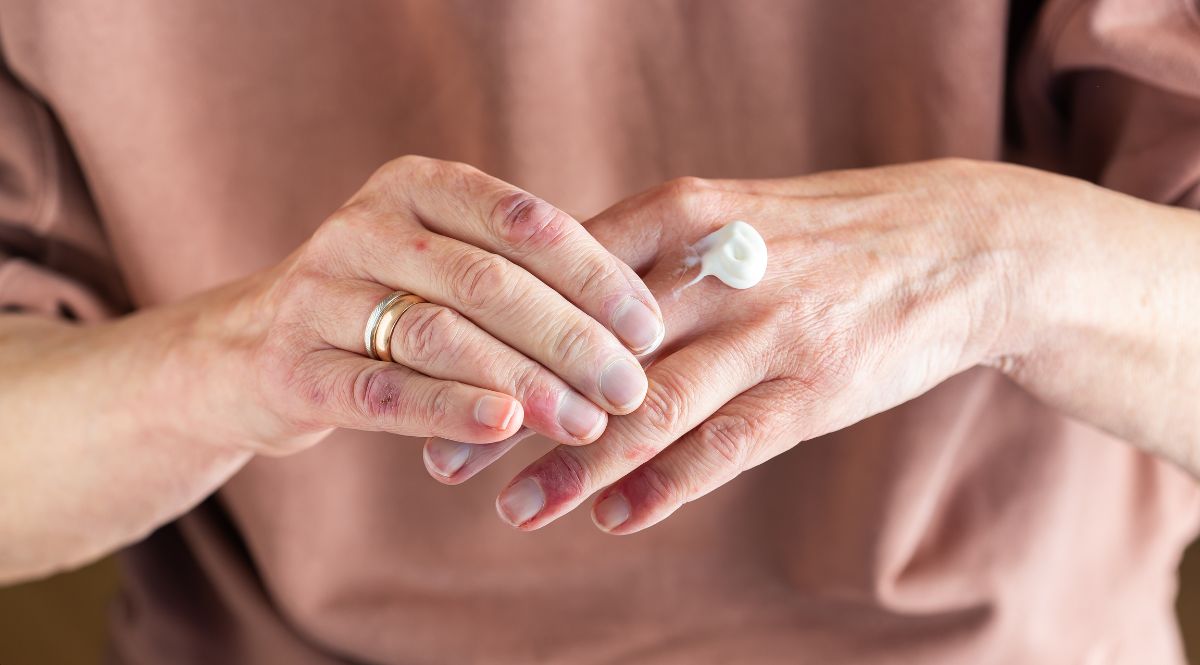Eczema, also known as atopic dermatitis, is a common skin condition that causes inflammation, itching, and redness. For those with sensitive skin, dealing with eczema can be a daily struggle. The skin becomes easily irritated by various environmental factors, allergens, or even stress, which can lead to uncomfortable flare-ups. Managing eczema-prone skin requires a gentle, targeted skincare routine and lifestyle adjustments to keep the condition under control. Here are essential tips for caring for eczema-prone skin.
1. Moisturize Regularly
One of the most important steps in managing eczema-prone skin is keeping it well-moisturized. Eczema weakens the skin’s natural barrier, making it more prone to dryness and irritation. Applying a rich, fragrance-free moisturizer at least twice a day helps to seal in moisture and restore the skin’s protective barrier. Look for creams or ointments containing ingredients like ceramides, shea butter, or glycerin, which are known for their hydrating and skin-soothing properties.
Avoid lotions that contain alcohol or artificial fragrances, as these can further irritate sensitive, eczema-prone skin. The best time to apply moisturizer is right after a bath or shower, when your skin is still slightly damp, to lock in hydration.
2. Use Gentle Cleansers
Cleansing is an essential part of any skincare routine, but for those with eczema-prone skin, using the wrong cleanser can worsen irritation. Choose gentle, soap-free cleansers or hydrating body washes that won’t strip the skin of its natural oils. Harsh soaps or cleansers with sulfates can leave the skin feeling tight, dry, and more prone to eczema flare-ups.
When washing your face or body, use lukewarm water instead of hot water, as hot water can further dehydrate the skin. Pat your skin dry with a soft towel instead of rubbing, which can aggravate sensitive areas.
3. Avoid Common Triggers
Eczema flare-ups are often triggered by external factors such as certain fabrics, detergents, and allergens. To minimize flare-ups, identify and avoid these triggers as much as possible. Some common triggers include:
- Synthetic fabrics like wool or polyester, which can cause irritation. Opt for soft, natural fibers like cotton.
- Fragranced skincare products or detergents, which may contain harsh chemicals that can irritate sensitive skin. Always choose fragrance-free and hypoallergenic options.
- Stress and allergies can also exacerbate eczema. Practice relaxation techniques like meditation or yoga to manage stress levels and take note of any foods or allergens that might trigger your symptoms.
4. Bathe with Care
Taking care of eczema-prone skin extends to how you bathe. Long, hot showers can strip the skin of moisture, which is particularly problematic for those with eczema. Instead, take short, lukewarm baths or showers, ideally lasting no longer than 10 to 15 minutes. Adding colloidal oatmeal or bath oils to your bathwater can soothe and protect sensitive skin during washing.
After bathing, apply moisturizer immediately to lock in hydration and calm the skin. Avoid scrubbing or using rough washcloths, as this can irritate the skin further.
5. Incorporate Anti-Inflammatory Skincare
Inflammation is a key characteristic of eczema, so incorporating anti-inflammatory ingredients into your skincare routine can help reduce flare-ups. Look for products that contain natural ingredients like aloe vera, chamomile, and calendula, which can help soothe irritated skin. Over-the-counter hydrocortisone creams can also help with inflammation, but be sure to consult with a dermatologist if you’re unsure about what treatments are best for your specific condition.
6. Wear Breathable, Comfortable Clothing
Clothing choices can play a significant role in managing eczema-prone skin. Fabrics that are too tight, rough, or synthetic can irritate the skin and cause flare-ups. Opt for loose-fitting clothing made from soft, breathable fabrics like cotton or bamboo. In colder months, layer your clothing to protect your skin from extreme temperatures, which can also trigger eczema.
7. Consult a Dermatologist for Severe Flare-Ups
While many eczema care tips can be managed at home, it’s essential to consult a dermatologist if your flare-ups are frequent or severe. They can provide specialized treatments such as prescription creams, ointments, or even light therapy to help manage your symptoms more effectively. In some cases, oral medications or stronger topical treatments may be necessary to control inflammation and reduce discomfort.
Living with eczema-prone skin can be challenging, but with the right skincare routine and lifestyle adjustments, you can manage flare-ups and minimize irritation. By moisturizing regularly, using gentle cleansers, avoiding triggers, and incorporating soothing ingredients, you can protect your sensitive skin and keep eczema symptoms under control. Always pay attention to how your skin reacts and consult a dermatologist when necessary to ensure your skincare routine is tailored to your specific needs.




